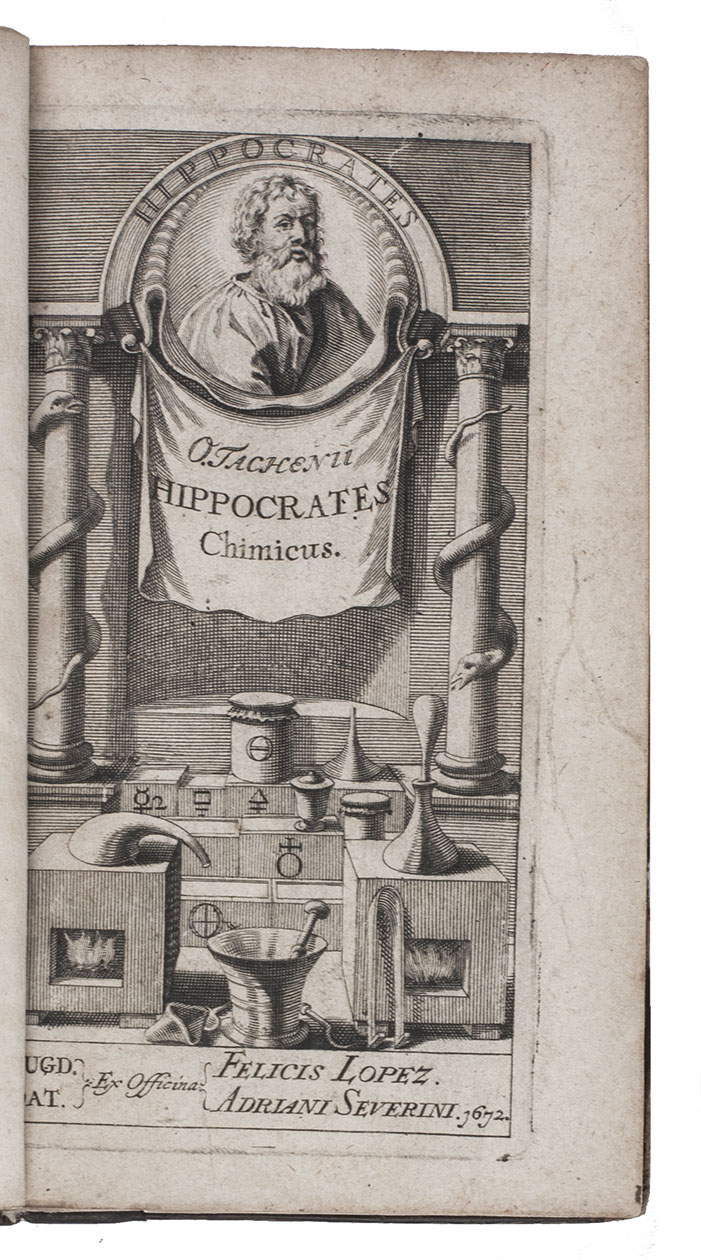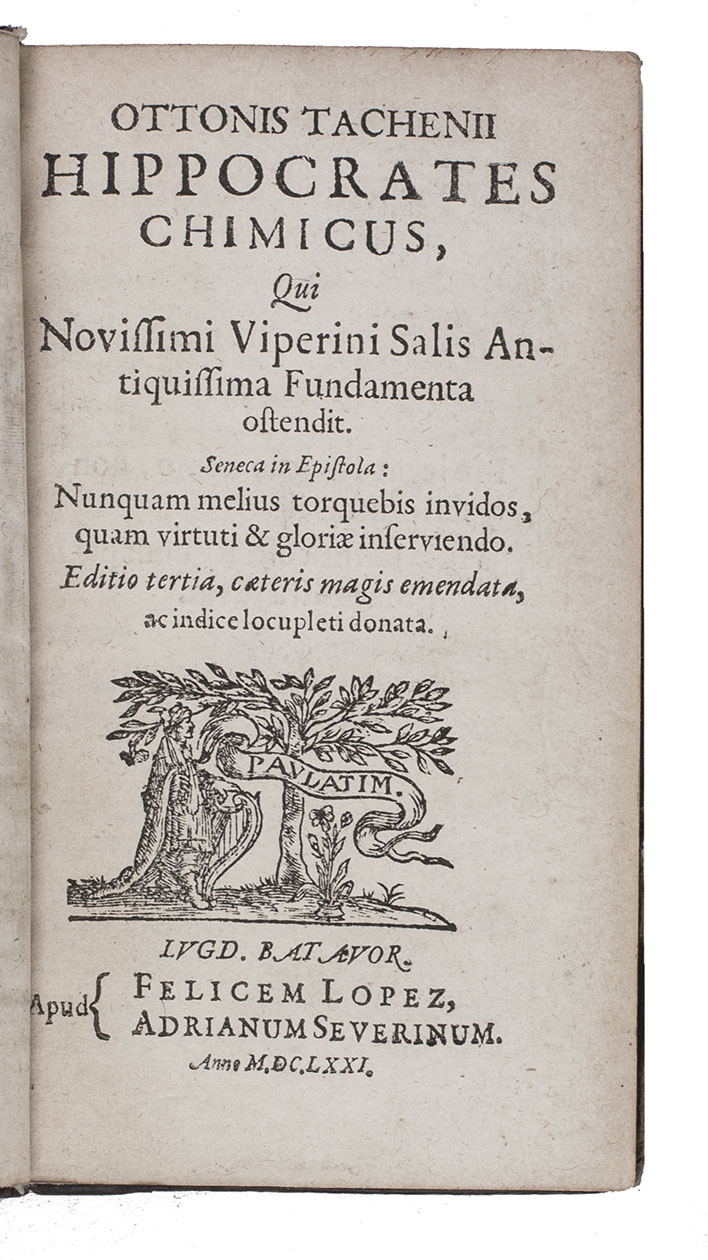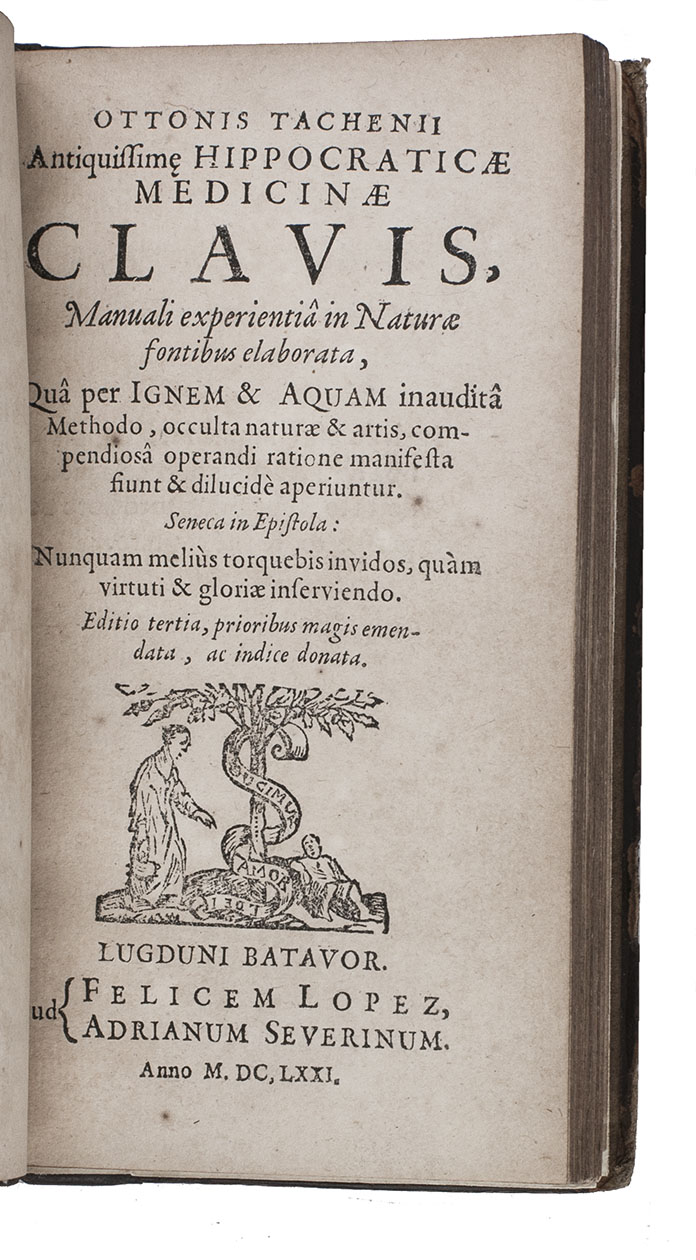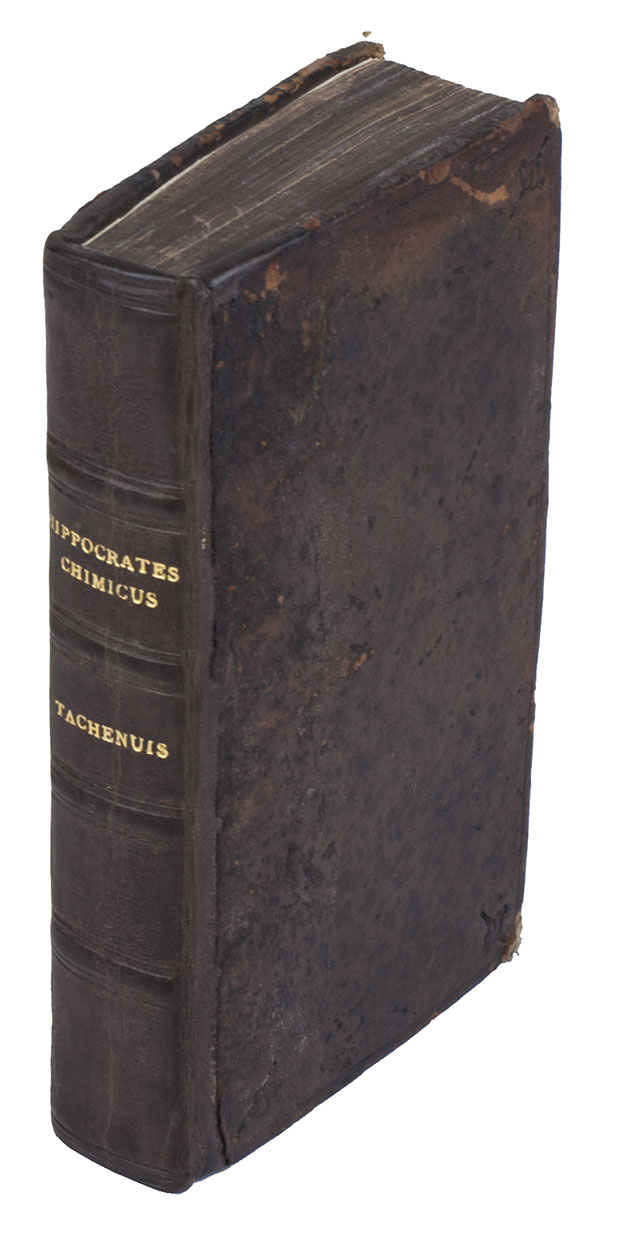TACHENIUS, Otto.
Hippocrates chimicus, qui novissimi viperini salis antiquissima fundamenta ostendit. ...
With: (2) TACHENIUS, Otto. Antiquissime Hippocraticae medicinae clavis, ...
Leiden, Felix Lopez De Haro and Adrianus Severinus, 1671. 2 works in 1 volume. 12mo. With newly engraved pharmaceutical title-page with a portrait of Hippocrates. Contemporary mottled calf, rebacked with modern endpapers. [48], 190, [2]; [24], 202, [14] pp.
€ 1,250
Rare third edition, with a newly engraved title-page, of Tacheniuss widely used work on chemistry and medicine. Together the Hippocrates chimicus and the Antiquissime Hippocraticae medicinae clavis form the complete works on chemistry and medicine of Otto Tachenius (1610-1680), based on the classic Hippocrates. He was schooled by Franciscus Sylvius, but surpassed his vision of acids, claiming that this is the basis of all physiology. According to Tachenius acid and alkali are the two elements of all things, corresponding to the fire and water that according to Hippocrates are in all things. He was in a debate of chemistry and medicine with Helwich Dietrich and Johann Zwelfer, the latter published his response to Tachenius work under the title Discursus apologeticus adversus Hippocratem chymicum in 1672.
Tachenius was a German pharmacist who worked as an apothecarys assistant in different German towns, before moving to Padua in 1652 where he earned his medical degree and introduced his acid-alkali theory. Finally he moved to Venice, where the first edition of his Hippocrates chimicus was published (1666). The work describes his theory of acid-alkali and his discovery of "viperine salts", from which he offers the reader many practical applications and recipes. In Venice his practical chemical recipes were well received by artisans such as glass-makers and soap-boilers, as were the methods for creating gold and coloured ink. The Antiquissime Hippocraticae medicinae clavis includes secret medical remedies that also can be created with the viperine salts, such as remedies against several diseases and cosmetic tricks like the whitening of teeth. All supposedly based on Hippocrates. Besides a justification of his theories, naming Hippocrates in both titles was also clever salesmanship by Tachenius.
Rebacked, as noted. Slightly browned, otherwise in very good condition. Ad 1: Krivatsy 11655; STCN (4 copies); ad 2: Krivatsy 11648; STCN (3 copies); cf. Partington, History of chemistry II, pp. 291-297; Thorndike VIII, pp. 357-360; for the author: Neue Deutsche Biographie XXV (2013), pp. 753-754.
Related Subjects:



